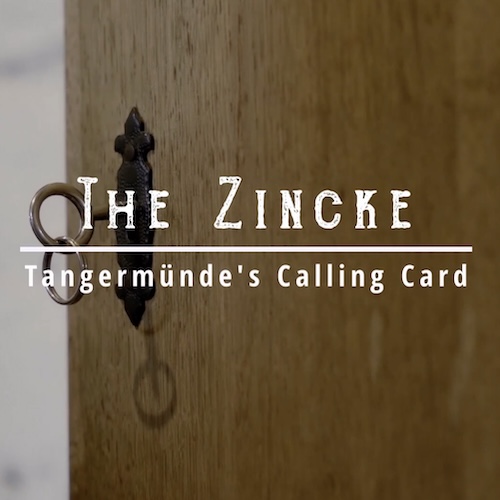SCHERER THE YOUNGER
Church Sankt Stephan Tangermünde
Organ details
History
The Hamburg organ builder Hans Scherer the Younger was regarded as the most important organ builder in northern Germany in his time.
The organ in St. Stephen's Church in Tangermünde is the only work by Scherer of which both the magnificently carved case and about 50 % of the original pipes, including all the front pipes, have been preserved. This is the largest contiguous pipe inventory of an organ from this period, and therefore of inestimable value. This high amount of original pipework provided plenty of clues that allowed for the missing pipes to be reconstructed closely to the original.
These uniquely favourable conditions allowed to restore the organ to its original condition of 1624. The organ of Tangermünde ranks among the most important stylistic references for North-German instruments from the first half of the 17th century and is thus rightfully regarded as an ideal instrument for the authentic performance of organ music of that time period.
HISTORY
- 1623-24: construction of the organ by Hans Scherer the Younger from Hamburg, one of the most important organ builders of his time, with 34 stops on 3 manuals and pedal.
- After 1700, various attempts to repair the organ by the Tangermünde organist and organ builder Johann Georg Helbig, as well as the organ builder Elias Wernitz.
- 1712-16: reconstruction by Johann Michael Röder from Berlinum.
- 1790: new construction of the windchests and actions of the main and Oberpositiff by Johann Gottfried Zabel from Tangermünde.
- 1856-58: fundamental rebuilding by Friedrich Hermann Lütkemüller from Wittstock; many new stops, new windchests and a new action for the Rückpositiv and Pedal were added, as well as new keyboards.
- Until 1930, various smaller alterations according to the taste of the time, including the installation of a swell box.
- From 1933 onwards, consideration was given to restoring the organ to the original state by Scherer. Renowned organ experts repeatedly emphasise the extraordinary value of the instrument.
- From 1980 restoration of the interior of the church.
- 1983: removal of the barely playable organ.
- 1988: static stabilisation of the organ console.
- 1990-92: restoration of the organ case.
- 1991-94: restoration and reconstruction of the Scherer organ to the state of 1624 by Alexander Schuke Orgelbau Potsdam.
- 2018/19: cleaning and careful restoration, addition of an upper chest in the Rückpositiv featuring two reed stops MessingRegal 8 and Krummhorn 8.
Multimedia library
Specification
| I RückPositiff CDEFGA-c3 | II OberWercke CDEFGA-c3 | III OberPositiff CDEFGA-c3 | Pedal CDEFGA-d1 | |
| Principal 8 I-II Gedact 8 Quintadeen 8 Octava 4 Holflöit 4 Zifelit 1 1/2 Mixtur II-IV Scharp III-VI Messingregal 8 Krummhorn 8 | Principal 16 Quintadeen 16 Octava 8 Gedact 8 Flöite 4 Ruspipe II Mixtur V-VIII Scharp III-V | Principal 8 Holpipe 8 Flöite 4 Nasath 3 Waltflöit 2 Zimbel III Trommette 8 Zincke 8 (from f) | Principal 16 Untersatz 16 Octaven Baß 8 Flöiten Baß 4 Ruspipen Baß II Bassunen Baß 16 Trommeten Baß 8 Cornetten Baß 2 | Schiebekoppel OberPositiff/OberWerck Tremulant 4 Sperrventile a1 = 486 Hz (15 °C) Meantone temperament after Praetorius |




